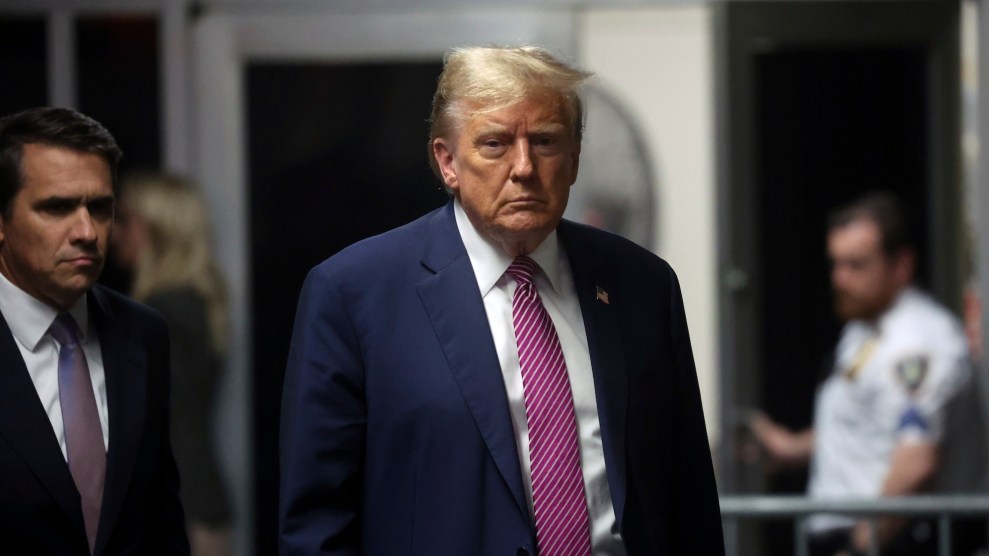If today’s hearing by the House Subcommittee on Highways and Transit is any indication, proponents of highway privatization could face a bumpy road ahead. Chaired by Peter DeFazio, the Oregon Democrat, the committee heard testimony on the public policy implications of so-called public-private partnerships, an increasingly popular financing model in which cash-strapped state and local governments invite the private sector to both lease existing toll roads and build and operate new ones. DeFazio has long expressed skepticism about such deals, once describing the privatization of highways in Chicago and Indiana as a “scam” during an interview with Mother Jones.
Judging from the remarks of members of DeFazio’s committee, it appears the privatization trend, which thus far has largely proceeded under the radar, is now a matter of bipartisan concern. In his opening remarks, John J. Duncan, Jr., the Tennessee Republican who is the ranking member on the committee, suggested that while state governments may secure large upfront payments for privatizing their roads, they could leave future generations “holding the bag.” “I’m also concerned about possible sweetheart deals for private companies,” he said. Indeed, the handful of companies that currently operate U.S. highways, including the foreign consortium that holds long-term leases on the Chicago Skyway and the Indiana Toll Road, have received deals that are highly favorable to their interests. While technically renting the roads, the length of the leases, which can extend for up to 99 years, allow the companies to depreciate their value as if they own them. This, in turn, can translate to tens, even hundreds of millions of dollars in tax breaks. Beyond tax incentives, there also remains some question about whether toll road concessions are actually in the best interests of taxpayers. In Indiana, where a 75-year lease on the state’s 157-mile toll road sold for $3.8 billion, one Notre Dame economist estimated that the highway could have earned as much as $11.38 billion had it remained in state hands.
Despite such questions, the privatization model has been whole-heartedly endorsed by the Bush administration and warmly embraced by U.S. investments banks, which have scrambled to set up multi-billion dollar investment funds to buy public infrastructure. Testifying today, Tyler Duvall, the Department of Transportation’s assistant secretary for transportation policy, said his agency “has made the expansion of public-private partnerships a key component in our on-going initiatives to reduce the high and growing cost of congestion and improve transportation system performance.” The DOT, in fact, has placed such an emphasis on privatization that it has been pitching the concept to state governments around the country, going so far as to draft model legislation states can use to authorize public-private partnerships. DeFazio, in his sometimes heated questioning of the witnesses, wondered whether privatization hasn’t become the agency’s sole focus, at one point asking a sullen Duvall whether DOT is “proposing anything at all to increase the investment” in the federal highway system beyond public-private partnerships. Duvall said, “they are not the answer, but they are a vital tool, I think, going forward.”
Unlike Duvall, who is one of a growing number of privatization boosters within the transportation department, Frank Busalacchi, the secretary of Wisconsin’s DOT, urged the committee to carefully consider whether ceding control of vital pieces of the transportation network is truly in the public interest. “The private sector’s legal responsibility to its shareholders is to make money — profit is their purpose,” he said. “The public sector’s responsibility is to ensure that we make wise choices with our citizen’s resources.” In this case, he said, the responsibilities of the public and private sectors are bound to conflict. “This is all about money. If anybody thinks it’s about anything else they’re mistaken.” Calling on Congress to “engage in the P3 [public-private partnership] debate,” Busalacchi added, “I fear that our P3 policies have evolved with little attention to their impacts.”
Today’s hearing was one step toward opening up that debate. But as DeFazio and his subcommittee take on privatization, they will find that many of the government officials charged with implementing the nation’s transportation policy have already made up their minds, coming down on the side of the companies that have long been working behind the scenes to open this once-closed market to private investment. Among them is Mary Peters, the recently appointed transportation secretary, who has championed this cause since her days as the head of the Federal Highway Administration. During a panel discussion on public-private partnerships, Peters once announced, triumphantly, that “the time has come for us to unleash the power of the private sector and the free markets.” The event was titled, aptly, “Let’s Make a Deal.”
















